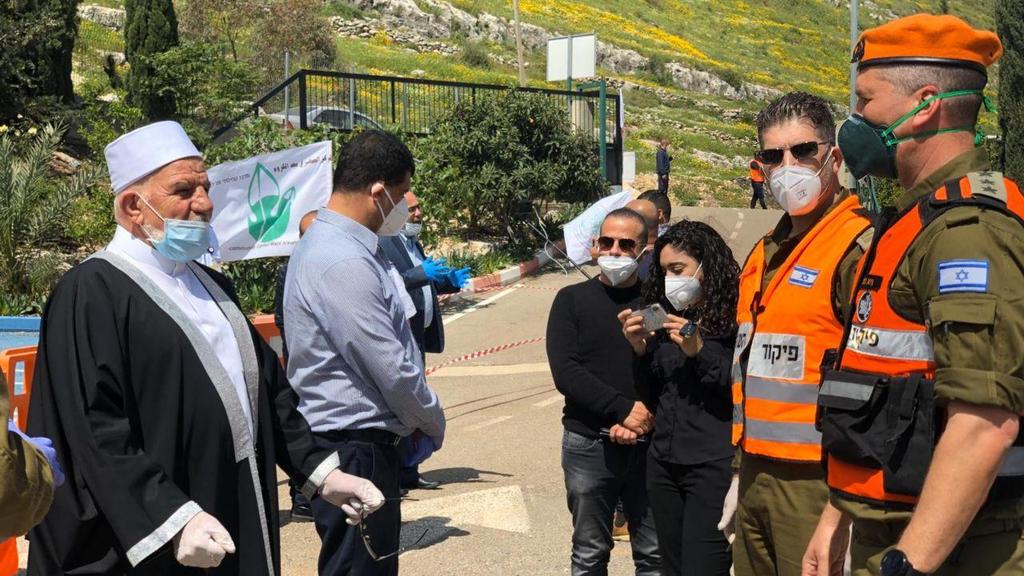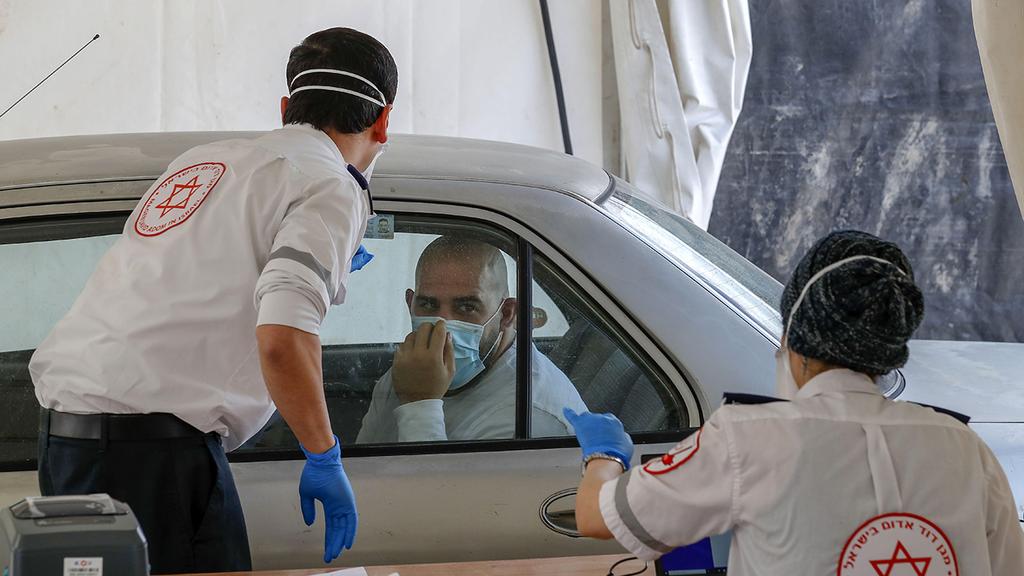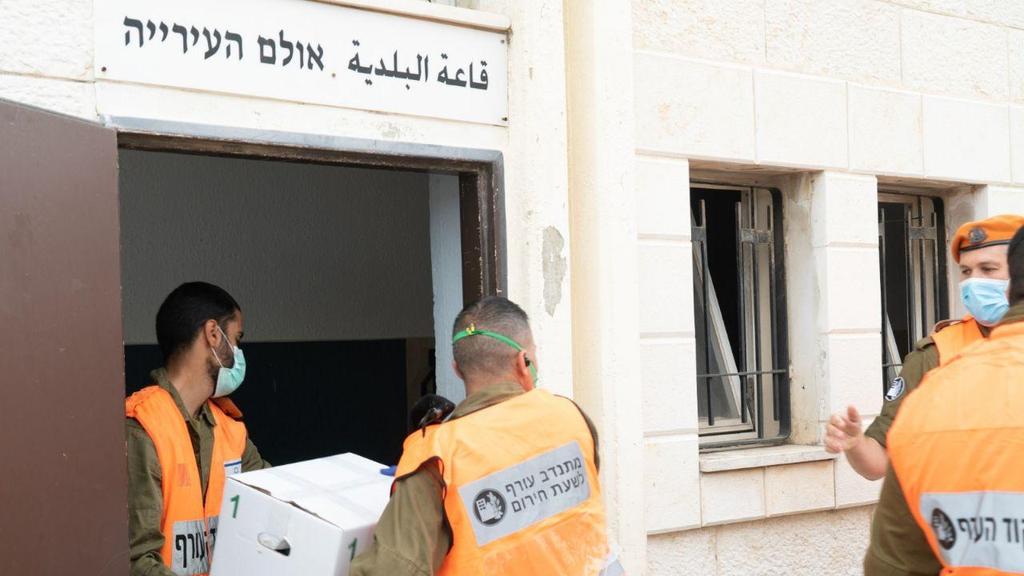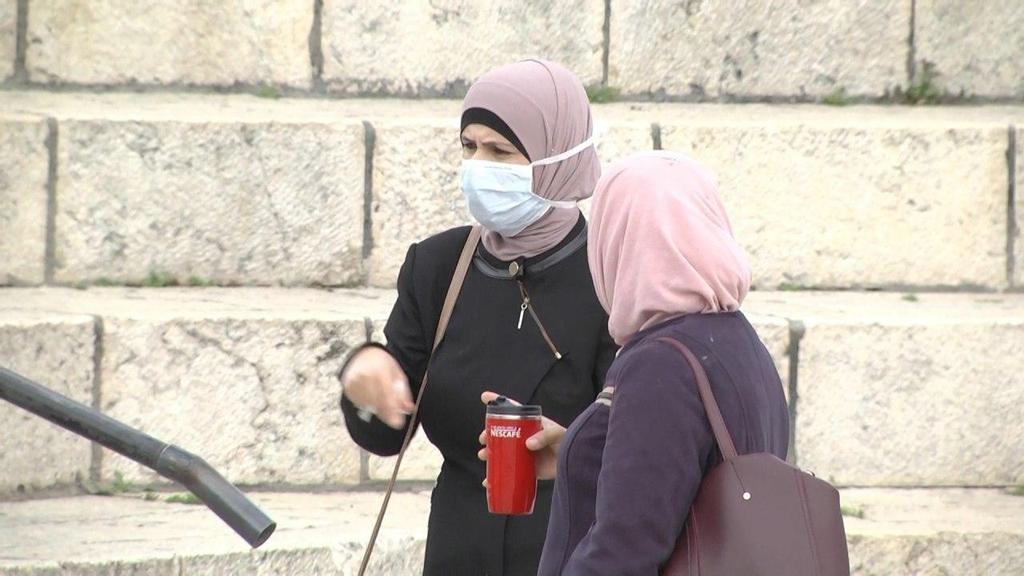As complaints mounted within the Arab sector regarding the state's lackluster efforts to halt the spread of coronavirus in their communities, The Health Ministry on Wednesday morning asked residents of the Galilee Arab village of Deir al-Asad to remain in their homes due to an "unusually high rate" of coronavirus spread in the community.
Last week, in other Arab villages throughout the country – Umm al-Fahm, Jisr az-Zarqa and Daburiyya – a worrying rise in infections was also recorded.
4 View gallery


IDF Home Front Command soldiers in the northern Arab village of Dir al-Asad
(Photo: IDF Spokesperson's Unit)
It should be noted that despite the announcement regarding the outbreak in Deir al-Asad, where there are currently 23 confirmed cases (with "hundreds of potential infections" according to the Health Ministry), health and defense data showed that the village was part of a group of towns and communities under a lower priority, where an outbreak was not predicted to happen.
A higher priority at the time were Jisr az-Zarqa, Daburiyya, Rahat, Um al-Fahm, Baqa al-Gharbiyye and Tamra.
One of the main points of criticism directed at health authorities was the late arrival of test facilities to the Arab communities, although it showed be noted that testing has been ongoing for two weeks so far.
The additional travel restrictions and curfew implemented during the Passover holiday period were not in effect in Arab communities, which were able to move between towns at ease.
Regarding the Health Ministry's plan for the upcoming Ramadan festivities, none have yet to be formulated.
Only over the past few days, have authorities began to mark the Arab sector as a potential breeding ground for an uncontrollable outbreak.
From an official meeting conducted earlier this week, it seems restrictions "different" than the ones enforced during the Passover holiday will also be put in place during Ramadan.
East Jerusalem: a ticking time bomb
The region defense officials are most worried about is East Jerusalem. The poverty and the crowdedness of these neighborhoods, which have been the stage for several violent altercations between residents and police, "are no different" than conditions in the city's ultra-Orthodox quarters.
However, the constant nationalistic tension alongside the tightening of the lockdown - if one is decided to be imposed - in the Arab neighborhoods of East Jerusalem and not in other parts of the country, could trigger a loosening of discipline that would allow the spread of the virus at best, or trigger a burst of violent resistance or friction with police at worst.
In contrast to Jewish neighborhoods where soldiers walk around in uniform, under the jurisdiction of the IDF's Home Front Command, in order to deliver food packages to besieged residents; such a scenario in East Jerusalem is less probable.
4 View gallery


Coronavirus testing center in the East Jerusalem neighborhood of Jabal Mukabar
(Photo: AFP)
The army is by protocol refusing to hand them out to citizens personally, instead of delivering them to distribution points where social workers and volunteers ship them out to the area's residents.
The risk of terrorist activity in the city has caused the soldiers who were assigned to help the city's ultra-Orthodox neighborhoods to patrol armed, unlike their colleagues in Tel Aviv or Bnei Brak, where only their COs are carrying weapons.
During debates this week between municipal leaders and health officials, the establishment of a task force to assist the whole Arab sector was decided.
Behind this decision, was the notion that the IDF is already part of every effort against the virus, from questioning travelers at checkpoints to delivering medication and food for those in need.
It is doubtful if this task force will include thousands of soldiers in uniform, especially in East Jerusalem.
Ramadan restrictions alongside post-Passover easing
Restrictions imposed on Israeli citizens during Passover, which were not enforced on the Arab population, will be different during Ramadan, which will be four times longer than Passover, and include more religious, social and psychological components that will be challenged this year, such as large nighttime meals with family, going out before the evening and the fasting that the Muslims take on throughout the day.
Enforcement throughout Ramadan will also be put to the test, as in most other parts of Israel, in Jewish cities, throughout May, restrictions will continue, but are expected to soften as part of the "exit strategy".
If many ultra-Orthodox officials now blame the government for creating "ghettos" for defining Bnei Brak and Jerusalem as "restricted areas", similar accusations could be raised by Arab officials next month, during Ramadan. This will require authorities to double their efforts in regards to public awareness and initiate cooperation with both local and religious leaders in the Arab sector as quickly as possible.



